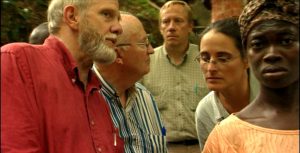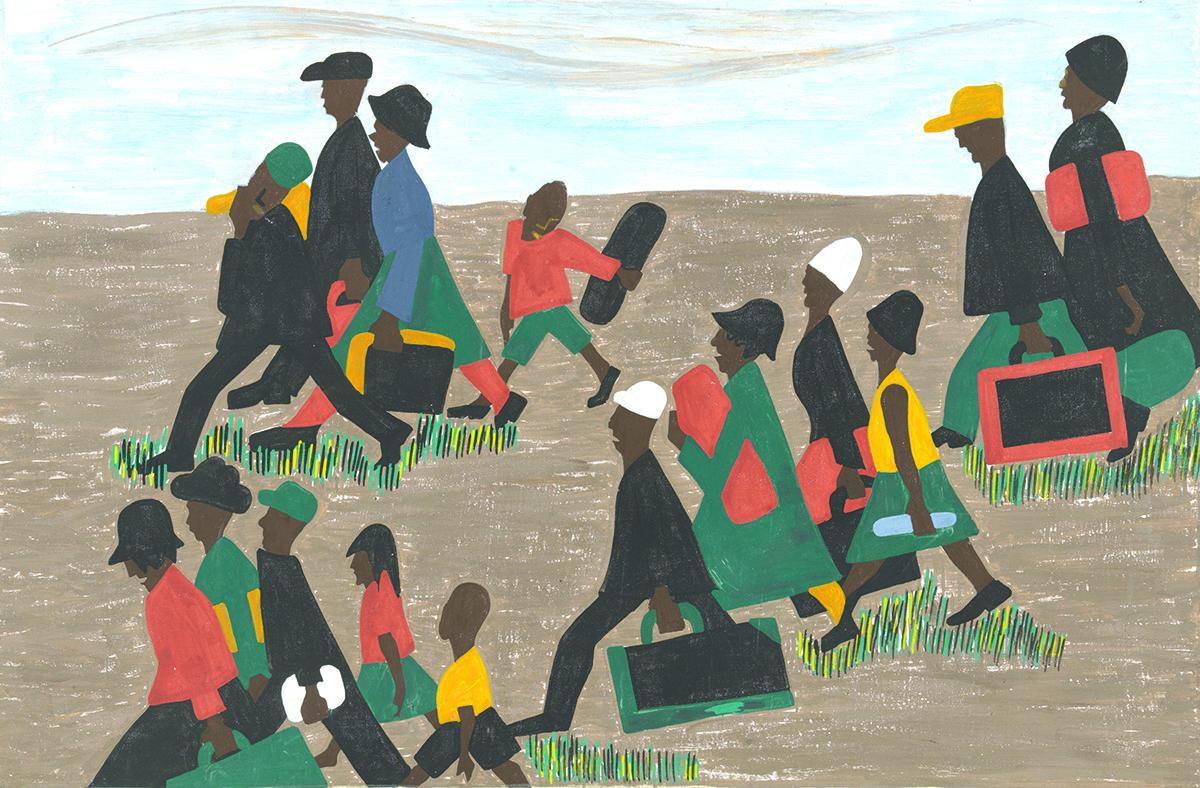
After watching Traces of the Trade two times, I have come to have a deeper understanding of the documentary. Though the documentary has many good layers including showcasing the problem of the deep north and conversations about subjects such as reparations and white privilege. On the other hand, it raised quite a few problems for me that I felt was not properly addressed.
One thing that struck me as odd was how nonchalant everyone seemed when they mention the Adjowa and Belladore nursery rhyme. The rhyme struck me as odd and dark because it ended with Adjowa being pushed down the stairs. It was discussed in passing; well my ancestor gave a slave to his wife as a present, and it turns out she was born on a Monday. It just felt like there was a disconnect between the story, where no one was interested in what really happened to the girls and how they lived.
During the tour of Bristol, one of the women got upset because there were shackles in the room and she felt uncomfortable. It saddened me because in that moment everything became center about her, while no one went to the root of the problem or even wondered what the black people might have felt. If the woman was that upset by being exposed to the little truth, then what might black people be feeling overtime they hear about slavery or encounter racism.
As a native of Ghana, I found it very disrespectful for the family to intrude on the sacred traditions of the festival. Their curiosity and need for closure became more important than understanding common courtesy and respecting boundaries. Even natives don’t stand around to just watch sacred proceeding, it is for those who are directly affiliated with it and not outsiders, so I understood why the black woman didn’t want to acknowledge them.
The Family’s participation in a so-called “slave meal” was pitiful as sad. They were served in fine china and good glasses. It defeated the point of putting yourself in the shoes of the slaves. Instead, to taking time to analyze the meal and go more in-depth, it was kind of skimmed over. During the walk around the abandoned building, some were too jovial for the circumstances and that rubbed me the wrong way.
The documentary was made with good intention the were many hits and misses, and though it achieved a great deal of many things, I don’t think the family put themselves fully into the experience and it was felt throughout the video.

I agree with Angela on all of the points she made. The DeWolf descendants intruded upon a ceremony that was not for them. To the DeWolf’s, The Ghanaian’s ceremony was just another cultural activity to check off their list.
It irritated me when one man reflecting on the documentary said that he did not like how Katrina pointed to his ivy league education as a result of his privilege. He didn’t acknowledge the fact that the DeWolf family was in the United States, profiting off of the trading of black bodies. They were established in the country, they had education, and they were treated as human beings way before African Americans were. The DeWolf’s have to realize that they have a family history that goes way back. Conversely, they have erased much of the history of African slave descendants. If that white man doesn’t credit his success partly to his ancestor’s trade, then I don’t think any of the trip had an effect on him.
Another point of the documentary I scoffed at was the DeWolf’s going to church to ask forgiveness. I don’t believe they can get that from their white leaders of their community. I wanted them to do something more concrete. I think reparations involve giving back to the community you took away from. That means going to underprivileged communities and supporting them with the resources you have due to white privilege. You could tutor kids in underfunded schools, donate money to poverty centers, offer career or business resources to students. Even if they found every descendant of the slaves they traded illegally, those people might not want to accept money or things. I think the DeWolf’s should look at the bigger picture. How people around the country are still affected by racism.